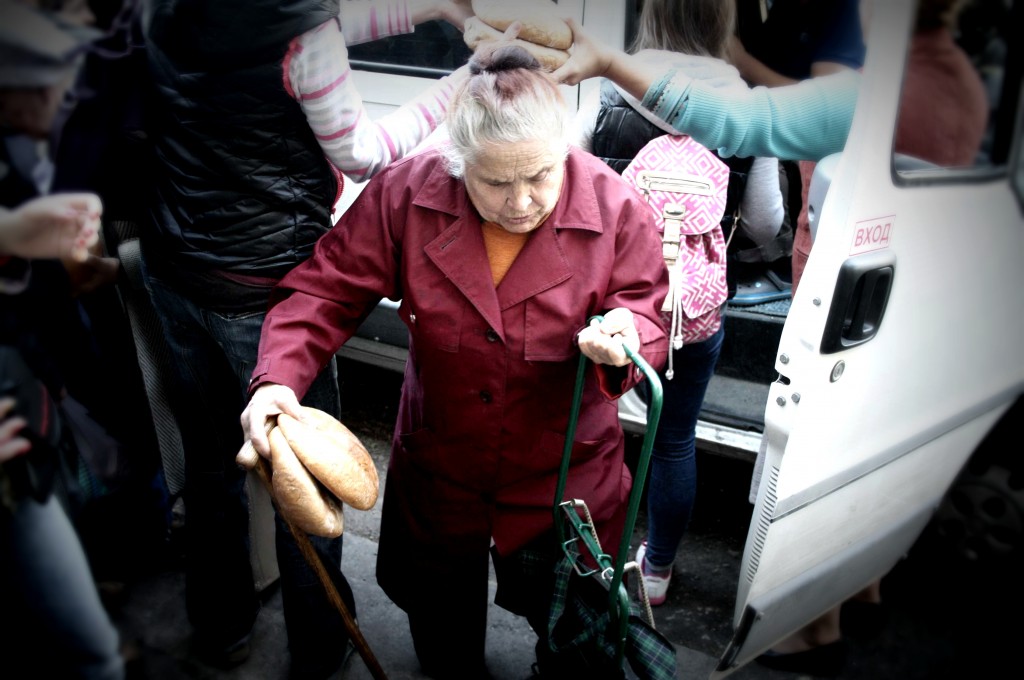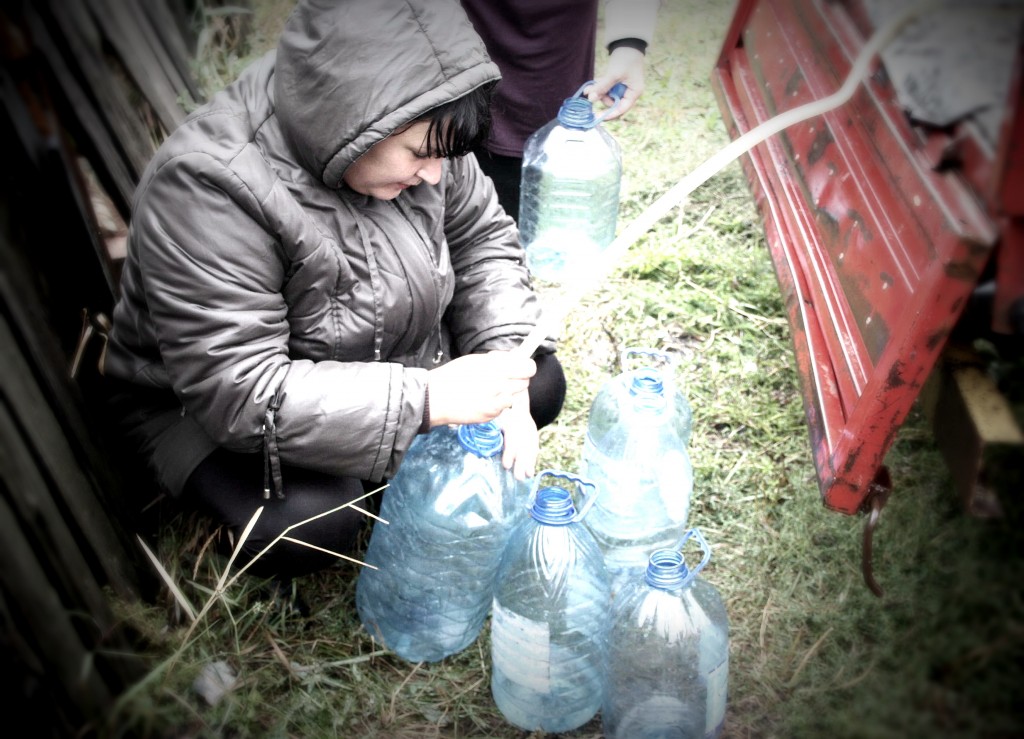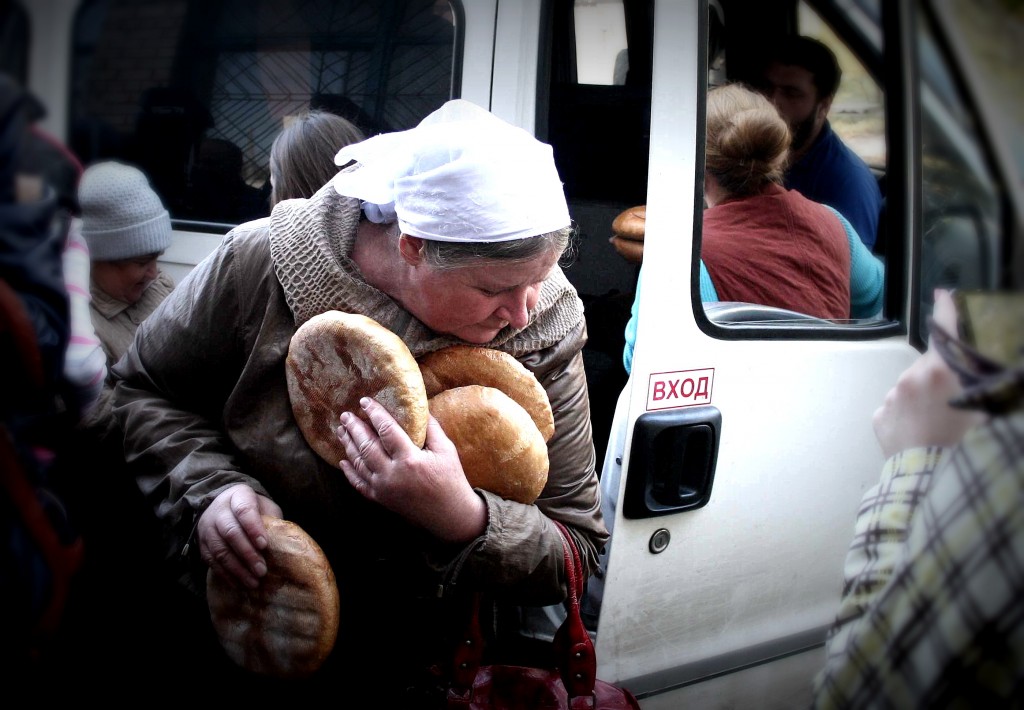It was from my mother that I heard the word used first. We were talking on the telephone and I kept asking her to leave Gorlovka, which was heavy under fire. I was telling her that her apartment wasn’t a safe place because it made no difference to the shells which walls they destroyed and that standing on her balcony under an umbrella wasn’t helpful either. But my mother, like thousands of other elderly people, refused to leave.
– “I won’t go anywhere”, – she’d say again and again. – “I have an apartment here… I have my winter canned goods … I can’t take them with me. Besides…I have friends here. We hide together in the bomb shelter. If I need an ambulance, they will call one for me. We even have a nickname we use for ourselves in the bomb shelter, “the abandoned…”
– “Why the abandoned?” – I was shocked and also deeply hurt by the use of this word. “Nobody abandoned you. We offered you to go with us when we were leaving. And I keep telling you to leave everything and come here. You don’t need to live under threat of these bombs…”
But my words proved useless. The elderly people in Donbas say the same thing: “Where would we go? Why should we go? Nobody needs us… What’s the difference if we hole up here? Things there are not any better. At least here we have the roof over our heads.”
The word “abandoned” was engraved in my mind. Now I think of it every time I visit the cities and villages along the front-line, and see them – lonely elderly women. There are so many of them that it often feels as if this entire zone belongs to them. The land of widowed women.
No, their husbands were not killed in this war. They likely died 10-15 years ago. Life expectancy for men in the Donbas region is roughly 54 years of age. For women it is 67. As a result many women after 50 are left widows. Where can they go?
We were giving out bread in Krasnogorovka and I called to the women that were sitting on a bench nearby:
“Come and have some fresh bread. It is still warm from the bakery…”
They approached us and suddenly one broke into tears. I tried to calm her by telling her that everything will be fine.
“ I know, I know that everything will be fine,” she said, “but you can’t even imagine how difficult it is here without you.”
–“Without whom?” I asked
–“Without you – men,” she answered. “Why did you abandon us? Everyone left us. It appears that nobody cares about us” – she started weeping again.
“Well, we didn’t just abandon you…” I tried to defend. “Some evacuated their kids and started new work. Others are in the army protecting you. And we, as you see, we bring you food…”
“I understand. I don’t blame you,” The woman finally calmed down. “You’ve done right… those that left and took their wives and children away. But still…it is very hard without you.”
Life indeed is hard for them here. They have no heating, no electricity, and no water supply. They cook right in their yards on an open fire. They need to cut trees, carry them home and then chop them into logs. How will they survive through winter? I often think of a woman we saw in Zolotoye village. She made a fire in the middle of the road, directly on the asphalt. When I saw her standing near the fire I thought at first that she had red boots on, and then I realized that she was bare-footed. Her legs swelled up so much that she could not wear any shoes.
Today the well-known passages from Scripture have a totally different meaning for me:
“Pure religion and undefiled before God and Father is this, to visit the fatherless and widows in their affliction…”
“When you reap your harvest in your field, and have forgotten a sheaf in the field, don’t go again to fetch it: it shell be for sojourner, for the fatherless and for the widow; that Jehovah your God may bless you in the work of your hands.”
“You shall not afflict any widow, or fatherless child. If you afflict them at all, and they cry at all to me, I will surely hear their cry…”
God speaks a lot about orphans and widows. He warns us against forgetting them. We don’t forget about orphans and many of us help the orphaned children in the orphanages. But what about the widows?
I finally realized who they are and what their life in that place – on the front-line, in the land of thousands of lonely women.
Evgeni Novikov




